How do you know if your weight is getting out of control and perhaps becoming dangerous? Many health warnings involve whether you're experiencing obesity, meaning that you've exceeded a certain BMI. But if you're like many of us, you've avoided stepping onto a scale, much less calculating a BMI, during much of the pandemic. Although BMI officially calculates obesity, there is another way that you can know your weight has reached a level of concern. Read on to find out more—and to ensure your health and the health of others, don't miss these Sure Signs You May Have Already Had COVID.
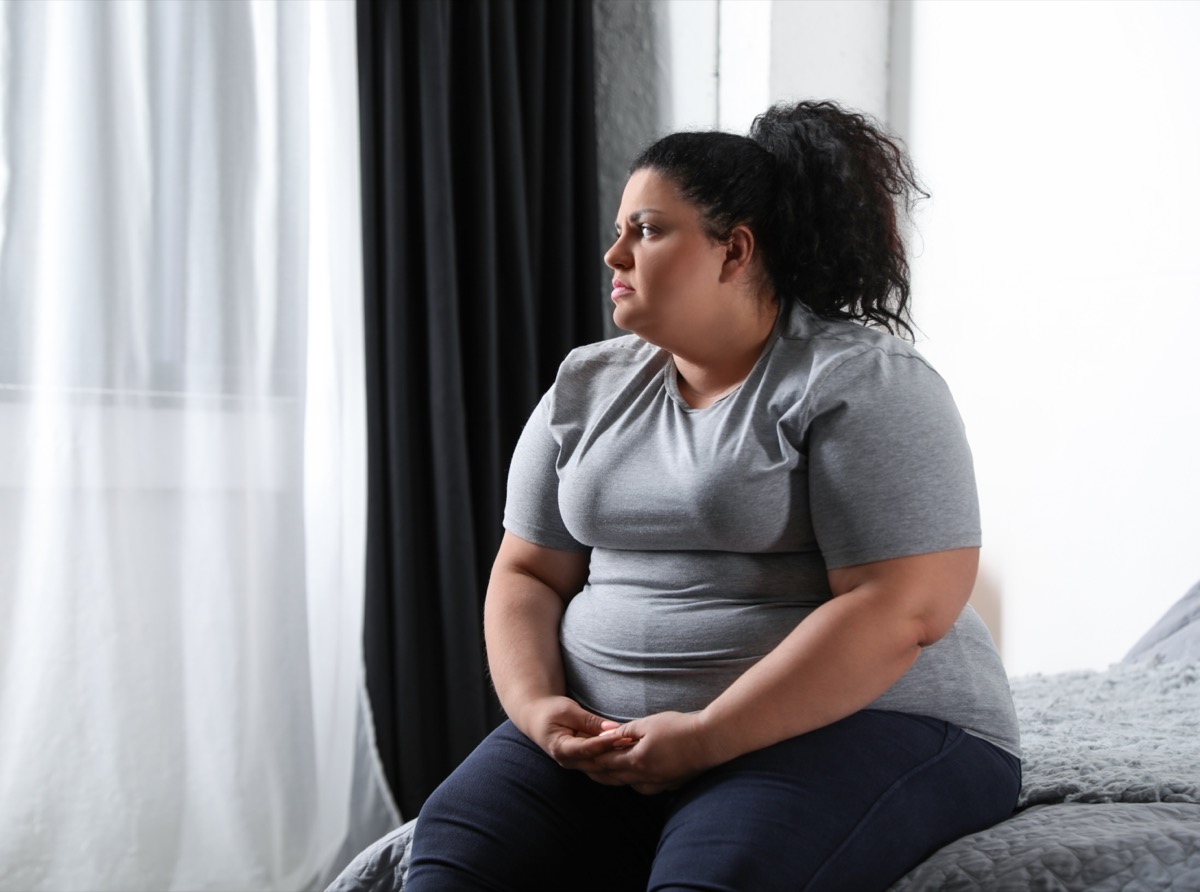
The Mayo Clinic defines obesity as "a complex disease involving an excessive amount of body fat." This can lead to a wide spectrum of health problems, including diabetes, heart disease and stroke.
According to the World Health Organization, overweight and obesity are defined as "abnormal or excessive fat accumulation that presents a risk to health." A body mass index (BMI) over 25 is considered overweight, and over 30 is obese.
However, the Mayo Clinic notes, "BMI doesn't directly measure body fat, so some people, such as muscular athletes, may have a BMI in the obesity category even though they don't have excess body fat."
RELATED: 50 Unexpected Health Problems After 50, Say Experts
"The best measure of that is changing waist size," says JoAnn Manson, MD, DrPH, professor of medicine at Harvard Medical School and chief of preventive medicine at Brigham & Women's Hospital in Boston.
Experts like Manson don't recommend that people weigh themselves regularly. It's a better idea to stay alert to how your clothes fit, particularly around the waist. "People will notice if their clothes are fitting differently, if their waist seems to be larger," says Manson, who details the latest science on healthy eating habits in the new documentary Better. "We often recommend that people—maybe once every month or so—take a tape measure around their waist and monitor circumference, because that is such a good measure of whether they're gaining weight."
RELATED: This One Thing Could Predict Dementia, Says Study
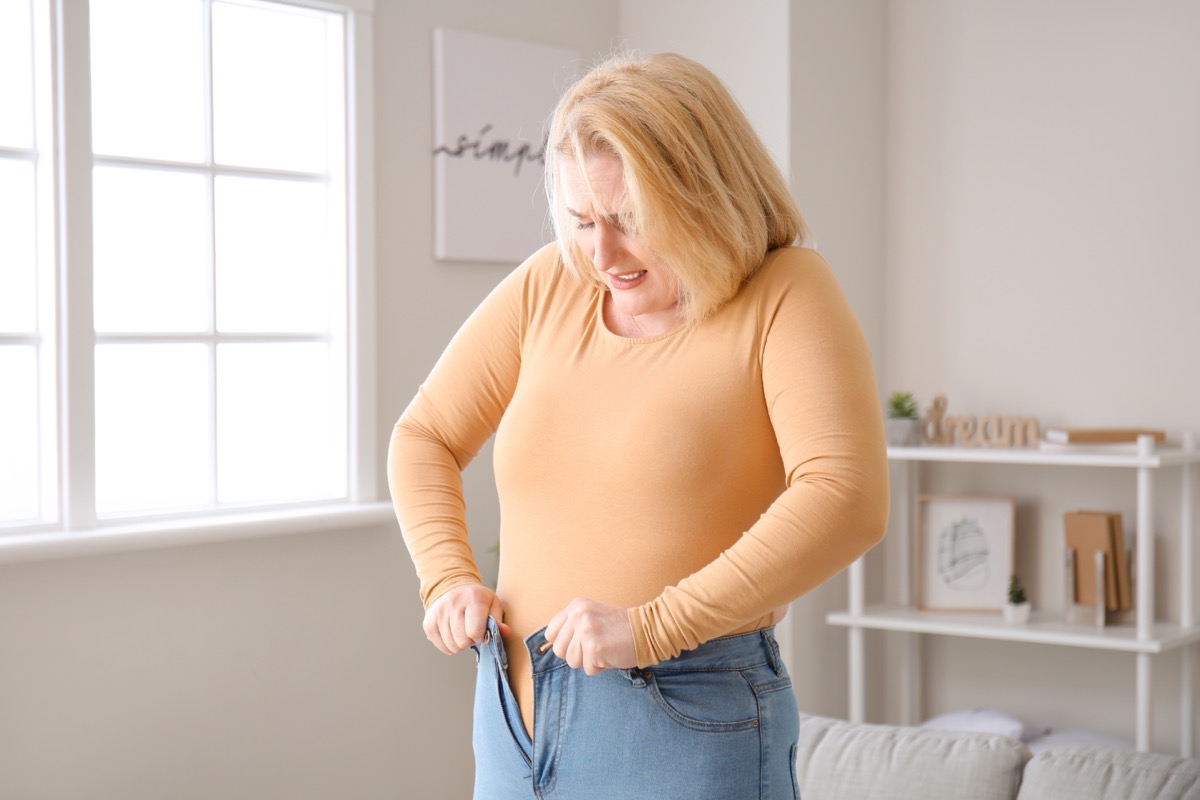
According to the NHS, obesity is caused "by eating too much and moving too little … If you consume high amounts of energy, particularly fat and sugars, but do not burn off the energy through exercise and physical activity, much of the surplus energy will be stored by the body as fat."
The converse would be to change your eating patterns and move more. But if you're concerned about your weight, it's always a good idea to consult your healthcare provider, who can recommend healthy-eating and weight-loss strategies that fit your medical history and current status. Fortunately, there are some easy, science-backed steps you can take to prevent obesity. Read on to find out more.
RELATED: Things to Never Do When Shopping, Say Experts
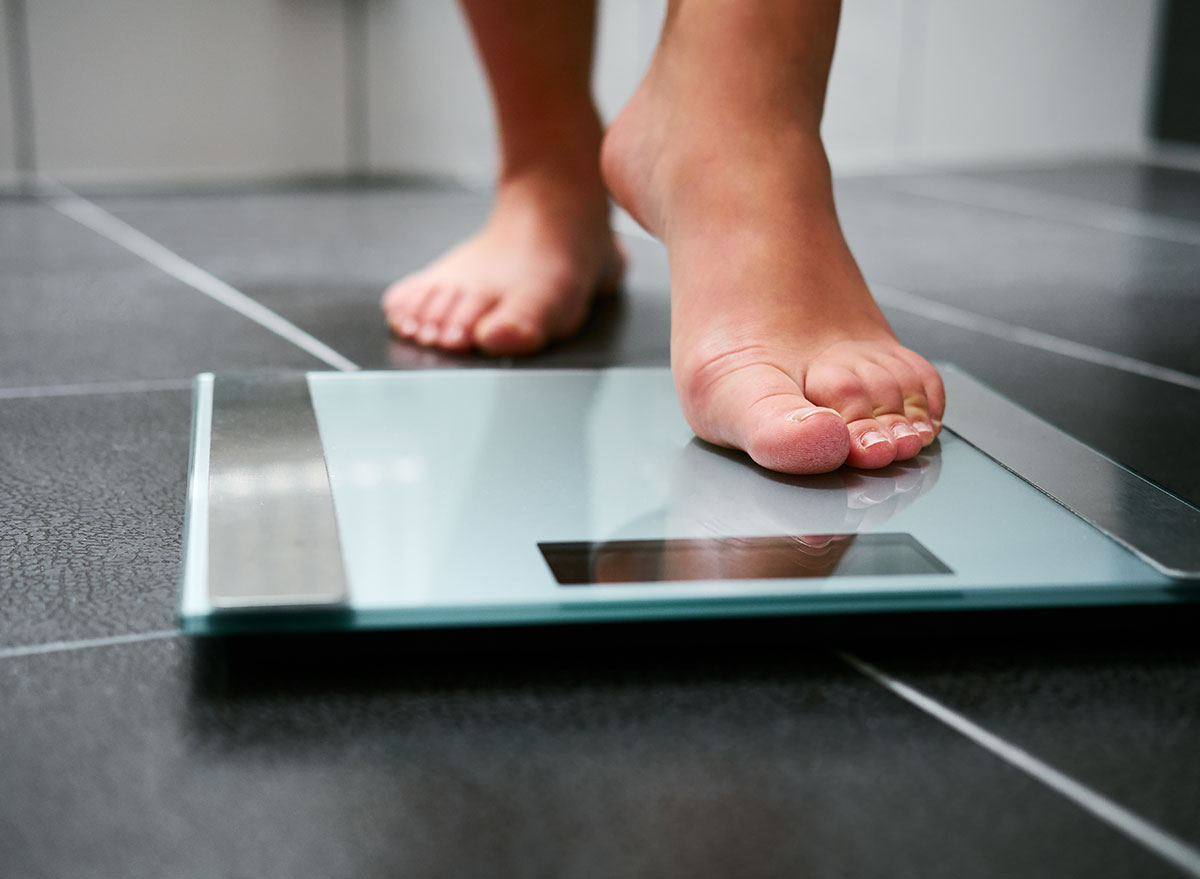
"One of the best ways to stop obesity is to prevent slow, creeping weight gain that can occur over an extended period," says Kirsten Davidson, Ph.D., professor and associate dean for research at Boston College. "We are all vulnerable to this if we are not vigilant. In today's environment, it is easy to consume 100 to 200 calories beyond what your body needs on a daily basis—this could be two cookies, for example—but over an extended period, this leads to weight gain."
Davidson's advice: Weigh yourself daily, or at least once a week. Track that information over time. "If your weight is on an upward trajectory, then you need to make lifestyle changes," she says. Davidson adds one caveat: Although that strategy works well for many people, it may not work for those who have an emotional relationship to food and weight. Checking in with a healthcare provider may be needed.
RELATED: I'm a Doctor and This Ages Your Skin Terribly

As discussed in Better, experts have seen the frustration of many dieters who pound away hours on a treadmill and endure low-calorie diets to little or no effect. That's because the body seems able to suss out when it's being deprived, so it downshifts metabolism to keep things stable. The net effect: You don't lose weight, and may even gain more.
"There is evidence that metabolism changes as part of an evolutionary adaptation to starvation and the body sensing the reduction in calories," says Manson. "You don't want the body to feel deprived, because it is going to make changes in metabolism that will sabotage your efforts to control your weight."
The hack: Satisfy your body, don't punish it. Eat foods "that lead to satiety, that lead to emotional well-being and that have the nutrition your body needs," says Manson. To find out what some of those foods are, read on.
RELATED: Looking Older? Stop Doing These Things Right Now, Say Experts
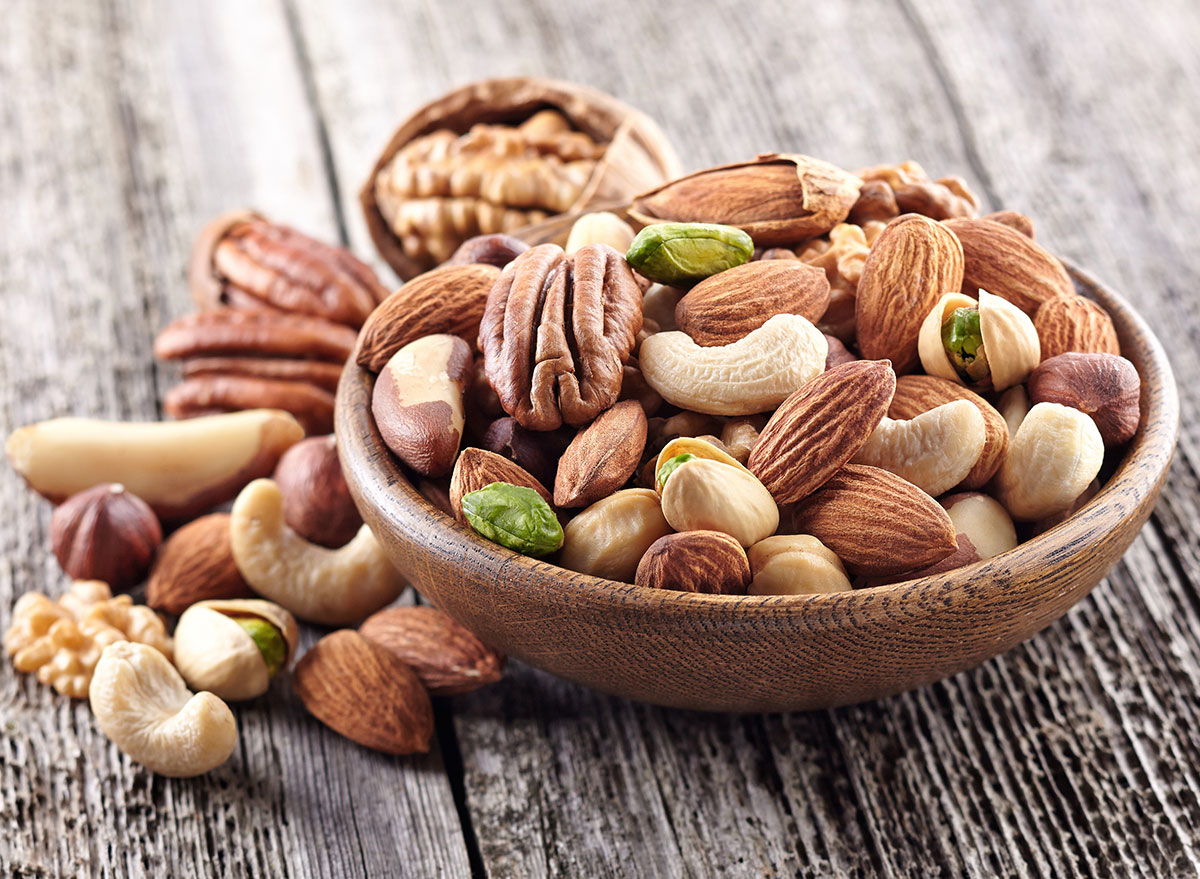
"A high-quality eating plan is something like the Mediterranean diet, which emphasizes fruits, vegetables, fish and olive oil, while being low in red meat, processed meats and processed foods," says Manson.
The key: Focus on nutritious foods that will fill you up, not high-calorie processed foods that won't. For example, when snacking, reach for a handful of nuts instead of chips. Nuts are nutrient-dense and rich in good fats that will satiate you, not leave you feeling hungry or queasy. "It leads to satisfaction," says Manson. "As opposed to, after you've had three donuts, you might feel really sick."
RELATED: 15 Supplements Every Woman Should Take, Say Doctors
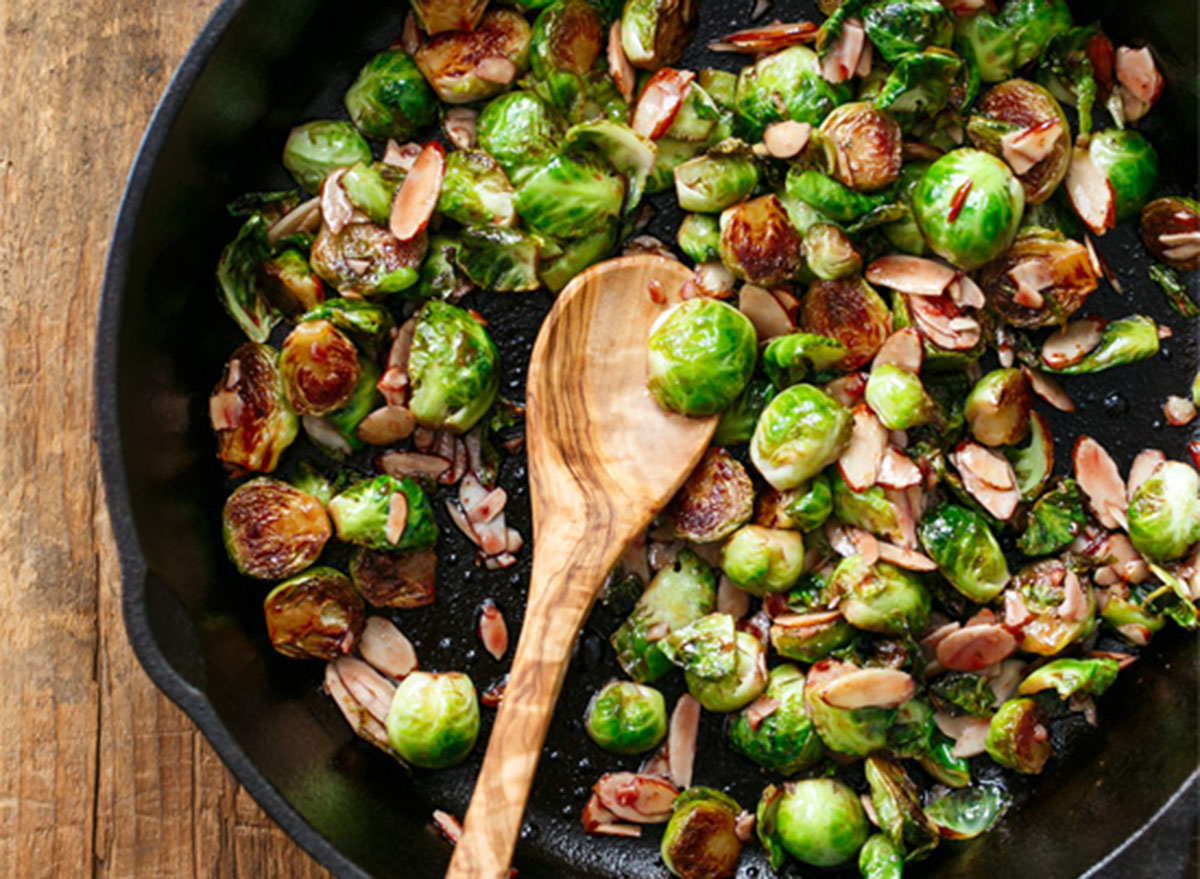
Snacking on non-starchy vegetables and fruits that are low in fructose can be very satisfying, while preventing the blood sugar spikes and crashes that starches and sugars can stoke. Manson suggests brussels sprouts or broccoli for a side dish, or for snacking, putting together a bag of mixed vegetables with hummus or a yogurt-based dip. Lower-fructose fruits include berries, apples, pears and strawberries.
RELATED: 40 Ways to Stay Healthy After 40, Say Experts

It's important to include resistance exercise as part of your activity plan. "Exercises that lead to increased muscle mass are a way to boost your metabolism," says Manson. "They're also really good for your health in terms of improving bone health, bone density, and greater muscle mass is important for reducing the risk of type 2 diabetes."
She adds: "It doesn't require that you have an exercise ritual or routine. But just trying to maintain an active lifestyle—being outdoors, walking, taking stairs, doing some resistance activities and avoiding prolonged sitting—are all really important to good health." And to get through this pandemic at your healthiest, don't miss these 35 Places You're Most Likely to Catch COVID.
The #1 Sign You're Getting Obese, Say Experts | Eat This Not That - Eat This, Not That
Read More
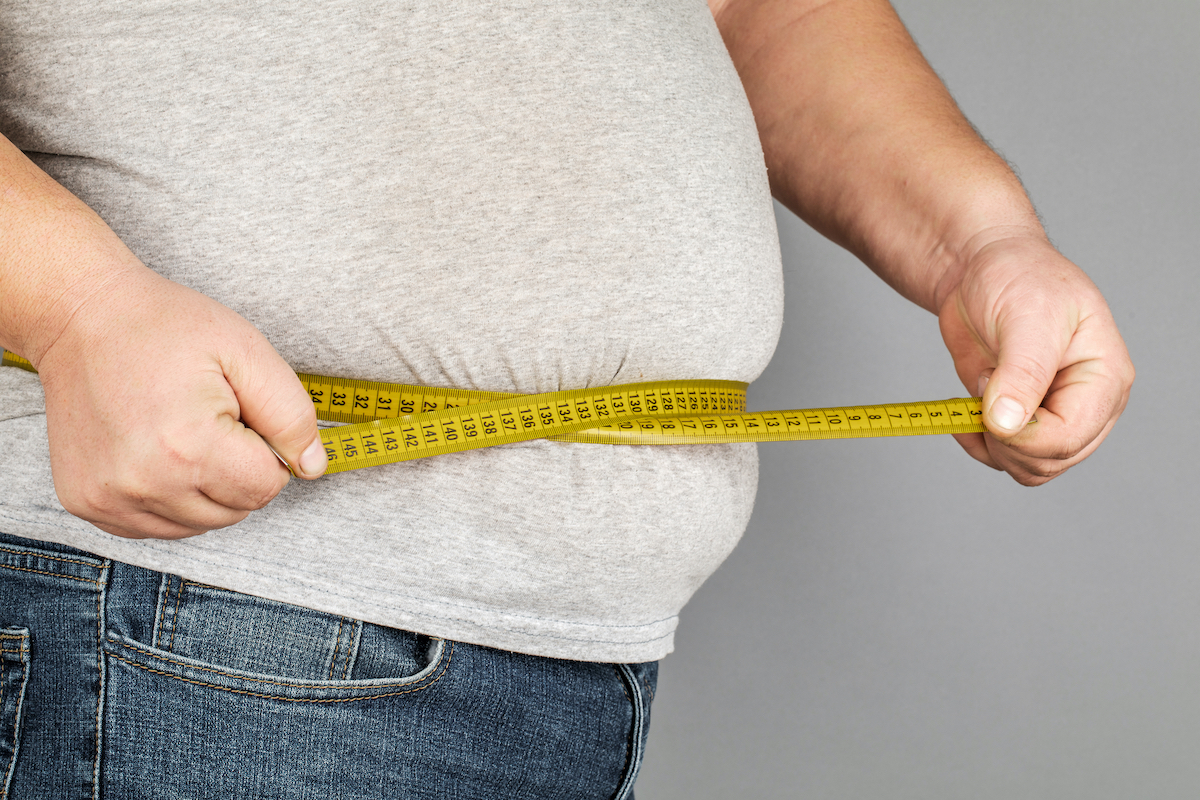

No comments:
Post a Comment